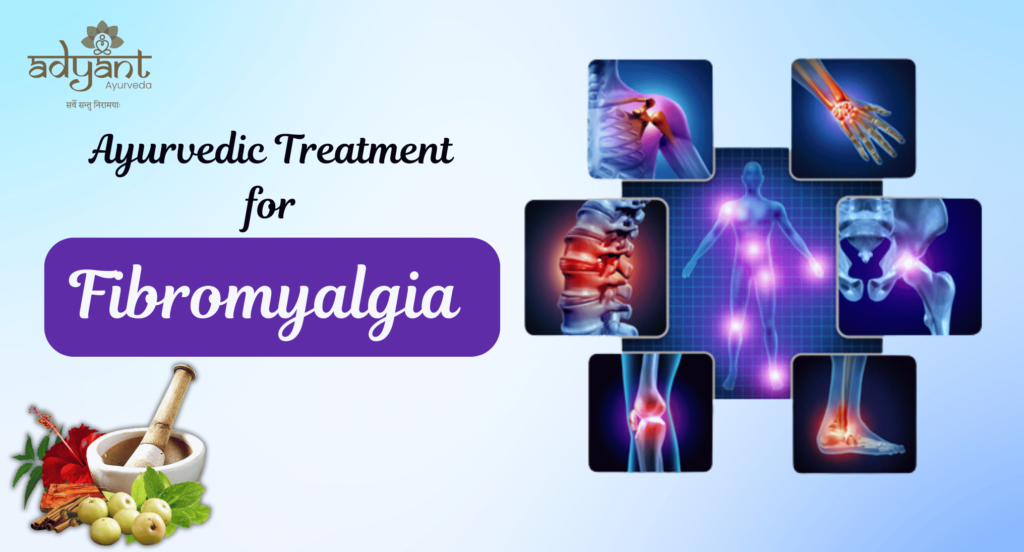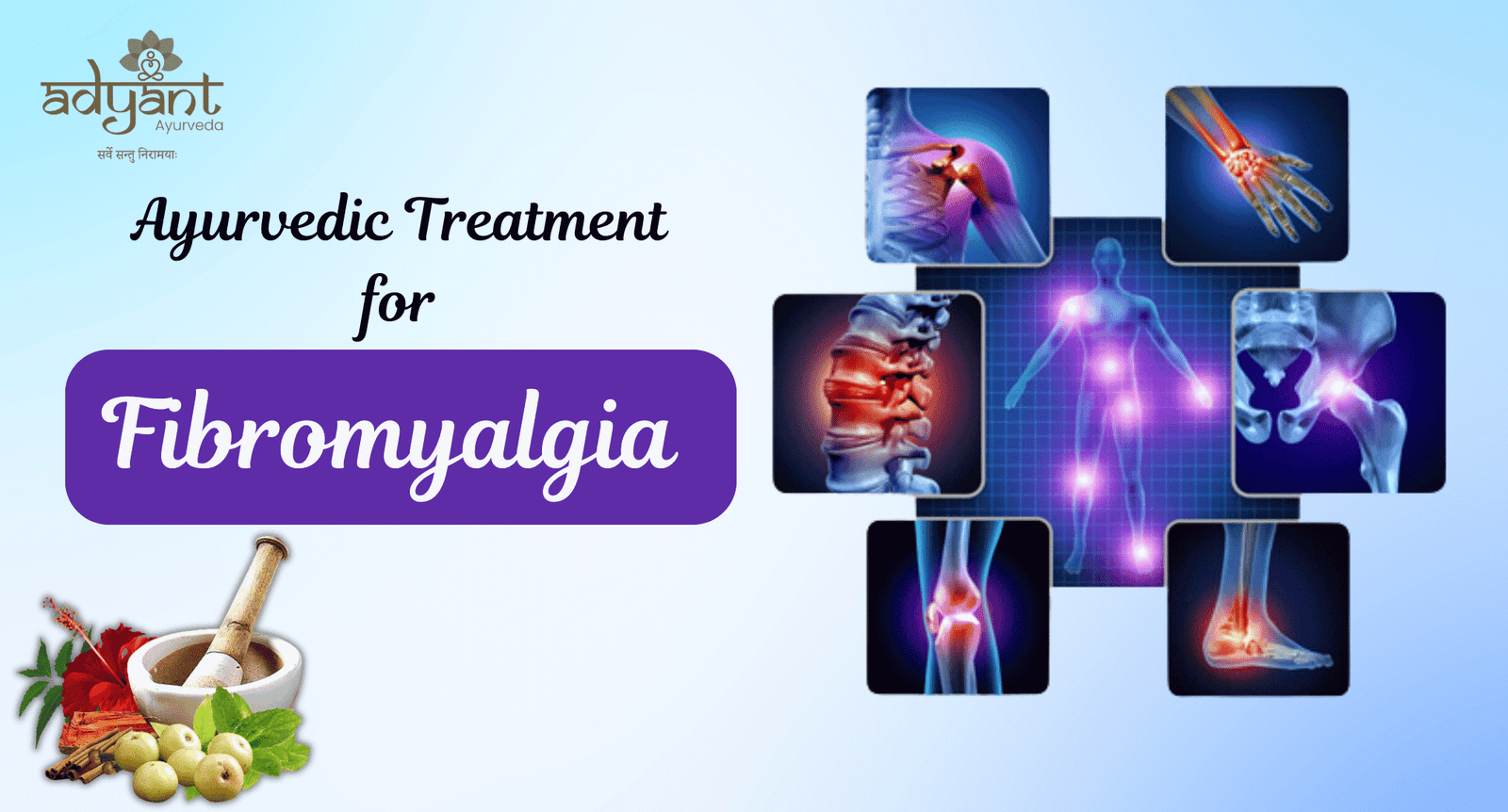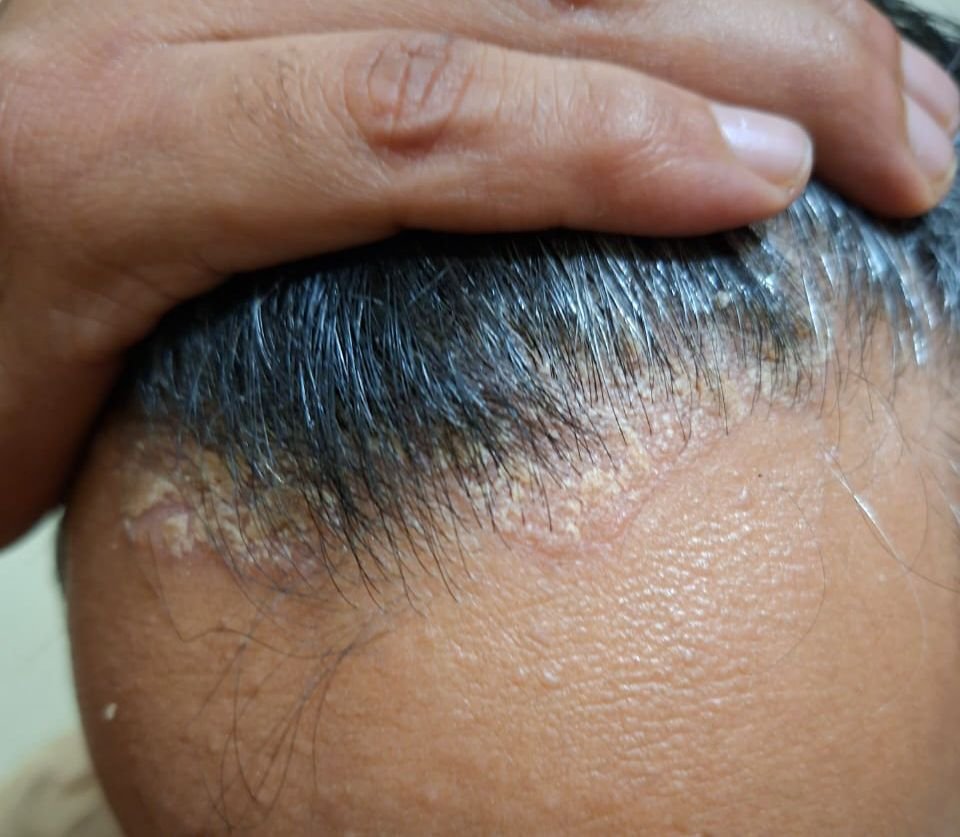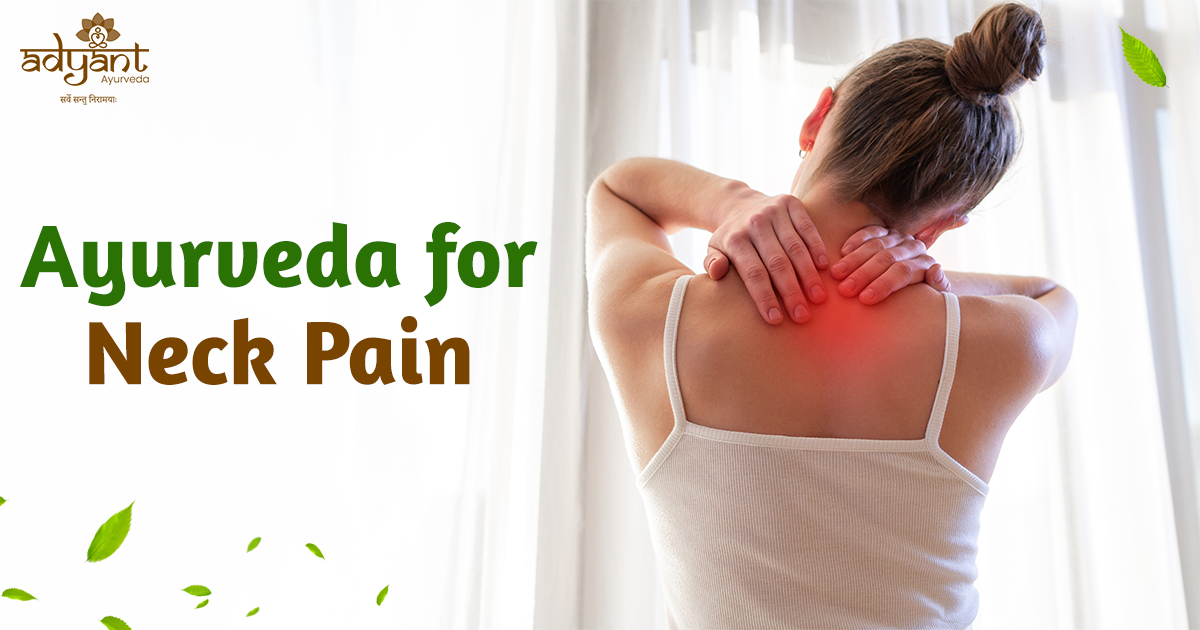Table of Contents
Toggle

Fibromyalgia is a chronic disorder characterized by widespread musculoskeletal pain, accompanied by fatigue, sleep disturbances, cognitive issues, and mood changes. It affects millions globally and is known for amplifying painful sensations by altering the brain’s pain perception.
While modern medicine offers symptomatic relief, Ayurveda provides a holistic approach, targeting root causes, improving vitality, and restoring mind-body balance.
📲 For Free Consultation with Ayurvedic Doctors, Download our app “AyurCare” from Play Store
🩺 What is Fibromyalgia?
Fibromyalgia is a complex and misunderstood condition that impacts the muscles, joints, nervous system, and mental well-being. It is neither inflammatory nor degenerative, which often makes it difficult to diagnose and treat with conventional medicine.
🔍 Common Symptoms of Fibromyalgia
Fibromyalgia presents with multiple symptoms that may vary in intensity:
Widespread Pain: Persistent, dull ache across both sides of the body and above and below the waist.
Fatigue: Tiredness despite adequate sleep; often worsened by restless legs syndrome or sleep apnea.
Fibro Fog: Trouble focusing, memory lapses, and reduced mental clarity.
Mood Disorders: Increased vulnerability to anxiety, depression, and emotional instability.
Other Symptoms: Headaches, IBS, TMJ disorders, and heightened sensitivity to temperature and noise.
💡 Risk Factors for Fibromyalgia
Gender: Women are more prone than men.
Genetics: Family history increases risk.
Stress or Trauma: Physical injuries, infections, or emotional trauma can trigger the condition.
Co-existing Conditions: Rheumatoid arthritis, osteoarthritis, and lupus increase the likelihood.
🌿 Ayurvedic Understanding of Fibromyalgia
In Ayurveda, fibromyalgia is classified under Vatavyadhi—a disorder stemming from aggravated Vata Dosha, which governs movement, pain sensation, and nervous system function.
➤ Ayurvedic Pathophysiology
Imbalanced Vata in the Annavaha Srotas (digestive channel) spreads through the Madhyama Rogamarga (deep tissues), disrupting Mamsa Dhatu (muscle tissue).
This leads to hypersensitivity, stiffness, fatigue, insomnia, and psychological symptoms like fear and worry.
Toxins (Ama) further block vital channels, worsening pain and discomfort.
🛑 Challenges of Living with Fibromyalgia
Chronic fatigue, persistent pain, and sleep disturbances impact every aspect of daily life—work, relationships, and emotional well-being. The invisible nature of fibromyalgia can also lead to social misunderstanding, isolation, and frustration.
🧘 Panchakarma: The Core Ayurvedic Treatment for Fibromyalgia
At Adyant Ayurveda, we employ Panchakarma—Ayurveda’s signature detoxification therapy—to treat fibromyalgia holistically.
✨ Key Panchakarma Therapies for Fibromyalgia:
| Therapy | Description |
|---|---|
| Abhyanga | Herbal oil massage to relieve muscle tension, improve circulation, and promote relaxation. |
| Shirodhara | Continuous pouring of medicated oil on the forehead to calm the nervous system and reduce stress. |
| Swedana | Herbal steam bath to eliminate toxins and reduce stiffness. |
| Udwartana | Dry powder massage to stimulate blood flow and reduce Kapha-related stiffness. |
| Basti | Medicated enema therapy—crucial for balancing aggravated Vata. |
🌿 Ayurvedic Herbal Remedies for Fibromyalgia
Herbs play a central role in Ayurvedic management of fibromyalgia:
Ashwagandha: Adaptogen; reduces stress, inflammation, and fatigue.
Guggul: Natural anti-inflammatory for muscle and joint pain.
Turmeric (Haridra): Curcumin-rich; excellent for pain and inflammation.
Shatavari: Rejuvenates the nervous system and improves vitality.
Triphala: Detoxifies the gut, supporting better digestion and immunity.
🏡 Home Remedies to Support Ayurvedic Treatment
Here are simple home-based remedies to complement clinical treatments:
Warm Baths: Relax muscles and reduce stiffness.
Mild Exercise: Yoga, swimming, or walking improves circulation and mobility.
Sleep Hygiene: Create a peaceful bedtime routine and avoid screens before sleep.
Diet: Favor warm, nourishing, Vata-pacifying foods like soups, ghee, cooked vegetables, and herbal teas.
Stress Management: Practice meditation, pranayama, and grounding techniques.
💚 Why Choose Adyant Ayurveda for Fibromyalgia Treatment?
| Feature | Benefit |
|---|---|
| 👩⚕️ Expert Doctors | Highly experienced in treating Vata-related disorders and chronic pain syndromes. |
| 🧬 Customized Plans | Each patient receives a personalized therapy protocol. |
| 🕉️ Holistic Care | Diet, lifestyle, mental health, and herbal medications are all addressed. |
| 🌿 Authentic Panchakarma | Detox from root level to enhance long-term healing. |
| 🤝 Compassionate Support | Counseling, education, and follow-up ensure continuity of care. |
📍Available across 4 branches in Bangalore – Jayanagar, Indiranagar, Kalyan Nagar, and Rajarajeshwari Nagar.
🧭 A Holistic Path to Better Living
Ayurveda recognizes that treating fibromyalgia requires detoxification, rejuvenation, and nervous system balance. At Adyant Ayurveda, our approach goes beyond symptom control—we aim to restore harmony, strength, and peace of mind to your life.
📚 Related Blogs
❓ Frequently Asked Questions (FAQs)
Q1: What is fibromyalgia, and what are its symptoms?
A: It is a chronic condition marked by widespread pain, fatigue, cognitive dysfunction (“fibro fog”), and mood issues.
Q2: How does Ayurveda treat fibromyalgia?
A: Ayurveda treats it as a Vata disorder, focusing on balancing Vata Dosha through Panchakarma, herbs, and lifestyle changes.
Q3: What therapies are used at Adyant Ayurveda?
A: Abhyanga, Shirodhara, Swedana, Udwartana, and Basti are commonly used, based on the individual’s condition.
Q4: Which herbs are helpful for fibromyalgia?
A: Ashwagandha, Turmeric, Guggul, Shatavari, and Triphala are among the most effective.
Q5: Can I use home remedies along with Ayurvedic treatment?
A: Yes, warm baths, yoga, meditation, proper sleep, and diet support Ayurvedic care effectively.
Q6: How soon can I see improvement?
A: Results vary, but many experience relief within a few weeks of beginning Ayurvedic treatment.
Q7: Is Panchakarma safe for fibromyalgia?
A: Yes, when done under expert supervision, Panchakarma is safe and highly beneficial for managing symptoms.
Q8: Will I need a special diet?
A: Yes, a Vata-pacifying diet with warm, nourishing foods and digestive herbs is often recommended.










